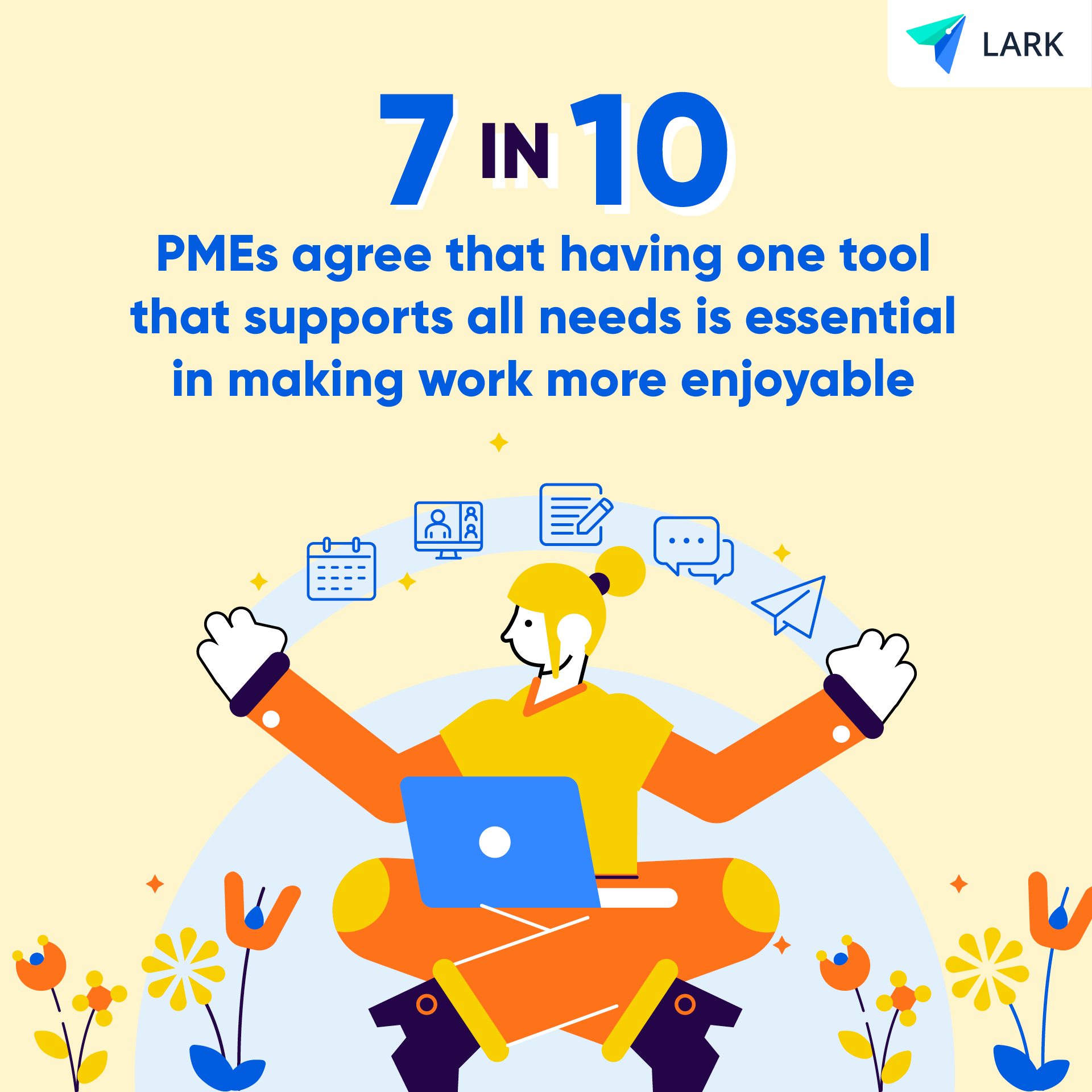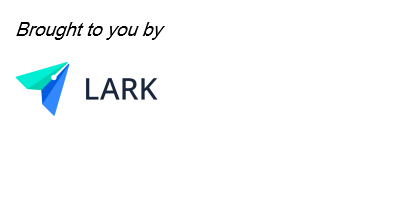BRANDED CONTENT
How companies are finding ways to think beyond the traditional 9-to-5 work week
With Covid-19 creating the biggest workforce experiment in history, companies are showing a growing interest in adapting to new models of work

Utilising a business collaboration and communications platform such as Lark would enable organisations to maximise flexible work arrangements and create a more positive environment for their employees in today's post-pandemic world. PHOTO: LARK
Follow topic:
When the pandemic hit, some students from the Singapore Raffles Music College who were abroad found themselves stranded, with few avenues of continuing their studies. The college management scrambled to find a way to ensure that this group of students could pivot to e-learning.
Through Lark's business collaboration platform, students from different regions could remain connected and communicate across borders, among themselves and with members of the faculty. They were also able to tap a cloud-based platform that allowed for easy sharing of files, videos and music recordings.
To the college's academic manager Jeremy Koh, such tools have enabled the school to "create a community and foster a sense of belonging among the students".
This experience is just one example of how nimble-footed companies can switch to flexible work arrangements in this new normal - with the help of the right tools.
Redefining the future of work
In a poll conducted in December last year by technology company Lark and online market research firm Milieu Insight, 1,000 PMEs (Professionals, Managers & Executives) in Singapore were surveyed on their attitudes towards flexible work arrangements and usage of collaboration tools and software.
Results from the poll showed that most PME employees here (94 per cent) want remote working arrangements to stay. This sentiment is shared across various age groups, job levels and sectors - including industries such as healthcare, computer and technology, education and financial services.

"Covid-19 has, in many ways, led to the global push towards flexible work arrangements", says Ms Joey Lim, Lark's vice-president of commercial, Asia. She also notes the "dramatic increase" in firms shifting to work-from-home models when the pandemic first hit.
This is a stark contrast to the past, where there was a cultural expectation for employees to be physically present in the office in order to get work done. In-person client meetings were also seen as the only way to get deals signed, she explains.
These sentiments have changed in Singapore and across the region, as the Covid-19 outbreak has made remote work mandatory - and not an option - says Ms Lim.
More measures needed to support flexible work

As employees continue to see the benefits of working remotely, organisations can expect greater demands for flexible work arrangements moving forward, she adds. However, the survey also revealed that more can be done to enable collaboration in the new normal.
Only one in five PMEs are very satisfied with their current remote and online collaboration work set-up. The survey also found that companies should have a collaboration tool which can cover the top three tasks of chat messaging, video meetings and e-mails.
One in two PMEs say time spent on work-related chats or messaging takes up about 10 to 50 per cent of the day. Younger people spend a bigger bulk of their day on messaging platforms, as compared with older groups.
More than half of PMEs (59 per cent) also use video meetings for at least 10 per cent of their day. The majority of PMEs (90 per cent) spend up to half of their day searching for files. Ms Lim points out that organisations "need to take a hard look" at their current work set-ups.
"With a dispersed workforce and the option to work from the office or remotely on select days, more employees are relying on collaboration tools to communicate, connect and get the job done," she says.
Improving remote working collaboration

But beyond enabling productivity, companies should see such tools as a way to make the work environment more positive, especially when people are seeing less of one another.
Seven in 10 PMEs agreed that having one tool that supports all their work needs is crucial to bringing about more efficiency and job satisfaction, the survey found. In Lark's case, the demand for its products has increased "manifold" since the pandemic, says Ms Lim.
"More organisations are now realising the benefits and importance of flexible work arrangements, and are now keen to find out ways to make it work for both their businesses and employees."
Lark has a broad user base spanning start-ups, small- and medium-sized enterprises, and global firms with over 2,000 employees. It also has clients hailing from government organisations, educational institutes, manufacturing firms and tech companies, she adds. Another client that has benefited from using Lark's services is local fashion brand Pazzion.
To continue its efforts towards expanding globally, Pazzion was on the hunt for an all-in-one solution for its team to communicate and collaborate with ease. While it had explored other team management programmes previously, it found that these were limited in terms of features, number of users the platform can accommodate and pricing options.
When it discovered Lark, Pazzion was able to unify its global team communications on a single platform. The retailer also found it useful to tap the service's key features such as Lark Attendance to track staff attendance, Announcement to broadcast key messages, Qoll to create quick polls and Lark Survey to ensure daily health reporting.
Overall, Pazzion also reported better engagement with staff across its global operations, as well as improvements in managing staff deployment.
As Singapore settles into Phase Three of re-opening, Ms Lim says that Lark wants to continue empowering and educating organisations to realise the benefits of using the right platform to optimise flexible or on-site collaboration and communication.
"This includes speaking with our users, organising virtual get-togethers and more, to understand their ever-changing needs. Ultimately, we hope to continually build features that are most useful to them," she says.
Visit www.larksuite.com to find out more about Lark's suite of business collaborations and communications offerings.


